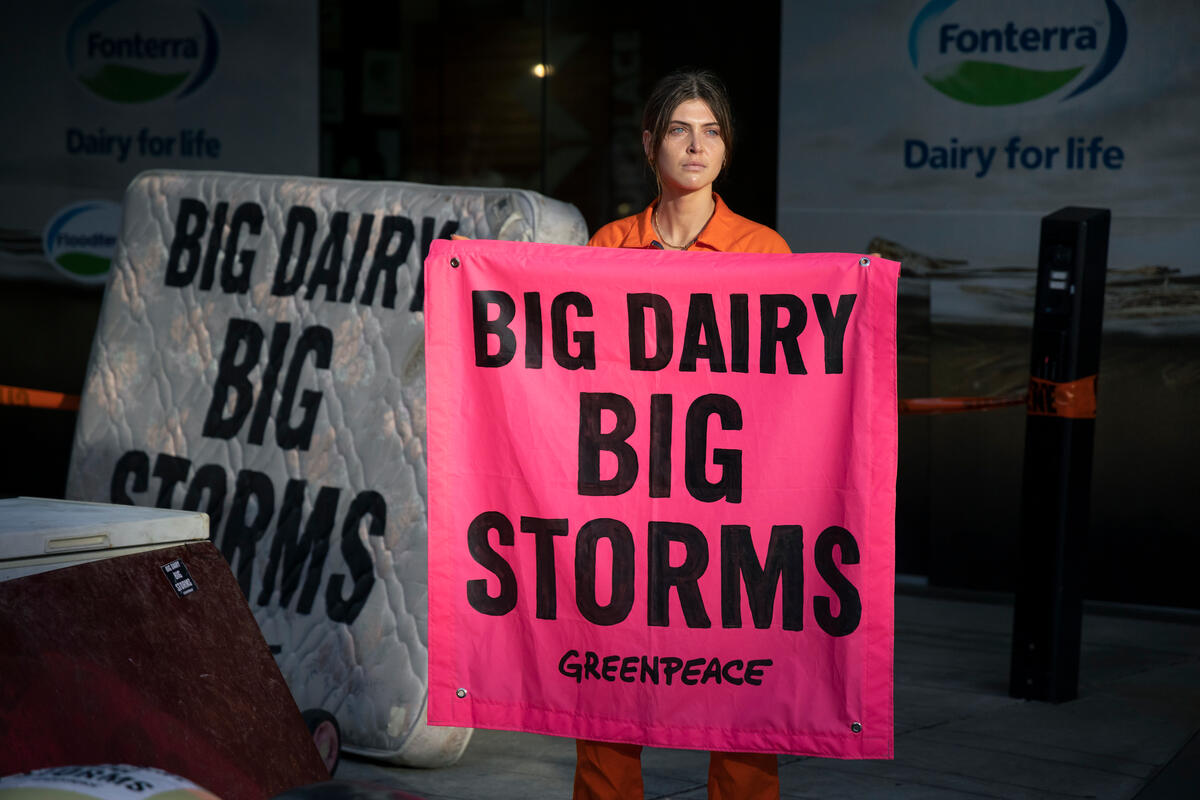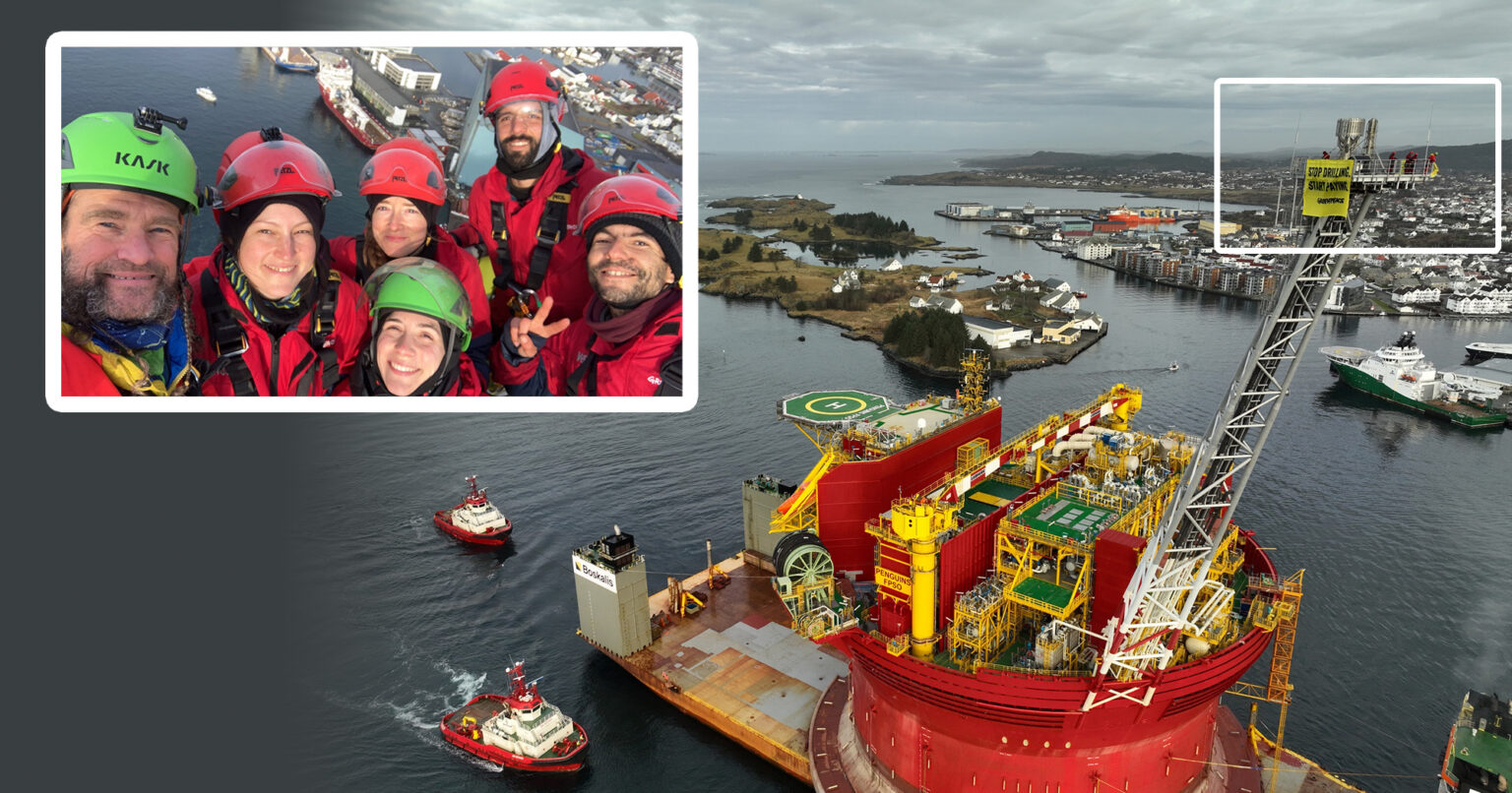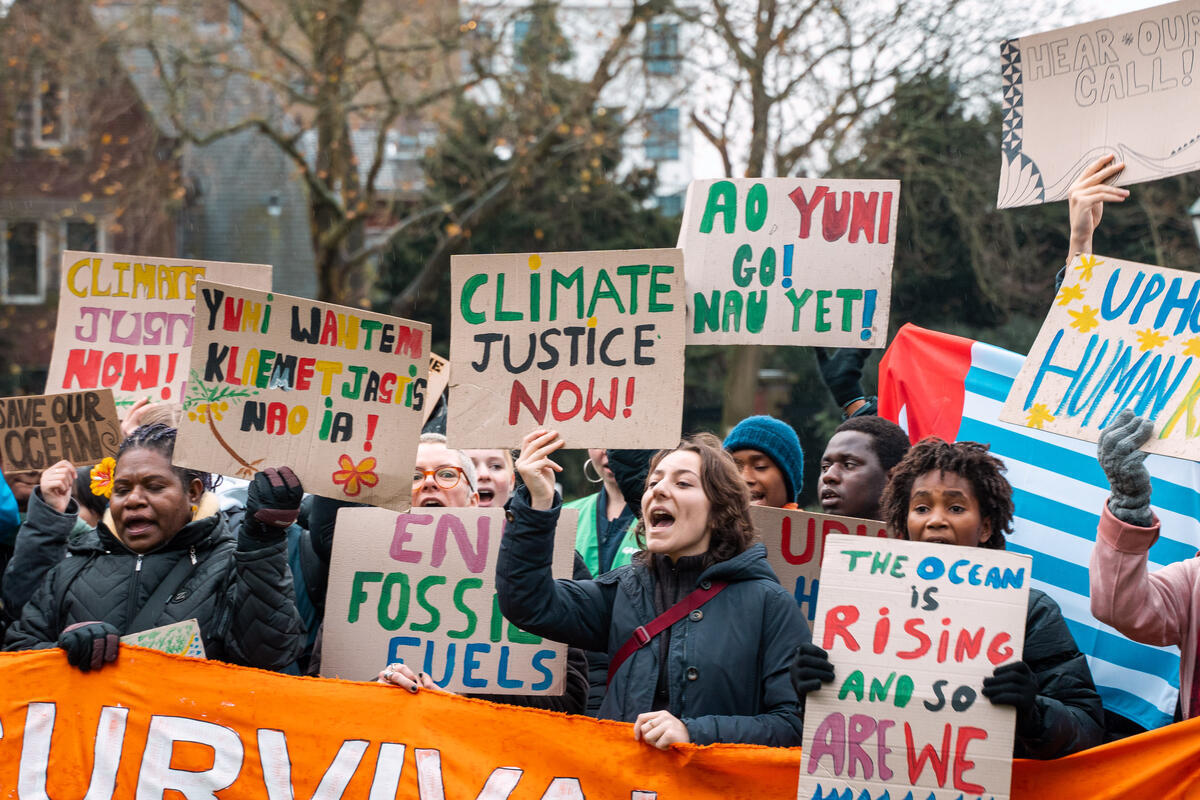Greenpeace Aotearoa has labelled the UN climate conference COP29 ‘a bandaid over a bullet wound’ as negotiations wrapped up on Sunday with little progress on cutting emissions.
Greenpeace Aotearoa spokesperson Amanda Larsson says, “Ultimately, we need to see really significant cuts in climate pollution to secure a stable future for our kids and grandkids. But the climate conference ended with polluting companies and countries effectively getting a free licence to continue polluting with few consequences.
“We know how to cut emissions – we have all the technology and tools to do so. What’s needed is political will to put these tools into action.
“Here in Aotearoa, that means tackling climate pollution from the intensive dairy industry by reducing the number of cows on farms, and ending the use of synthetic nitrogen fertiliser and palm kernel expeller. It also means maintaining the ban on offshore oil and gas exploration.
“We all want to pass on an abundant future to our kids and grandkids, and if governments won’t hold polluters to account, then people will,” says Larsson.
Larsson pointed to the increasing use of legal action to challenge polluters, such as the Smith vs. Fonterra case, in which climate advocate Mike Smith is taking New Zealand’s most polluting companies to court for driving climate devastation.
“People are increasingly taking to the streets and the courtrooms, putting their bodies on the line to shut down climate polluters. This will only escalate further if Governments continue to cave to polluting industries.”
Last week the New Zealand Government passed legislation to remove agriculture from the Emissions Trading Scheme – just days after the Climate Change Performance Index (CCPI) downgraded New Zealand’s ranking on climate action. Key policies identified by the CCPI as contributing factors included the reversal of the oil and gas ban and the removal of agriculture from the Emissions Trading Scheme.
“The Luxon Government is letting polluters write the policy on virtually every environmental issue, and this is the result,” says Larsson.
“In every space where we need to be taking rapid action to reduce emissions, the foxes are running the henhouse. Fonterra, the country’s biggest climate polluter, attended the UN climate conference on government badges, while politicians directly connected to polluting industry lobby groups are now in ministerial positions.
“If the Government won’t take action, then everyday New Zealanders will do it for them. The intensive dairy industry and the fossil fuel industry should expect mass resistance.”



